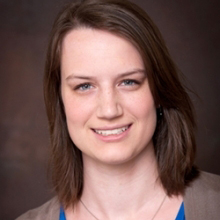Most of my colleagues have backgrounds in business, economics, math, or engineering. I, on the other hand, graduated from Indiana University last year with majors in international studies and Spanish, a certificate in Political and Civic Engagement, and a minor in political science. I have always been fascinated by the “international,” and thought it unlikely that I would enter the private sector when my studies focused on political, cultural, and language knowledge. Yet despite apparent disconnect, I am finding that my education and experiences in college were excellent training for work at L.E.K.
Liberal arts skills have thus far shown themselves to be an asset during the first eight months of my management consulting career at L.E.K. In college I learned social, political, economic, and cultural problem-solving by researching the causes, evaluating potential solutions, making recommendations or conclusions, and assessing outcomes. Also, just about all of my team projects and presentations in school involved a collaborative approach, and provided me with the opportunity to develop my communication and team-based thinking. At L.E.K. I have been noticing that these researching, synthesizing, problem-solving, and communication skills I picked up as a student of liberal arts are all necessary and applicable in the world of management consulting. I have been continuing to hone my research ability by reading market reports and conducting primary research. Problem-solving is valued greatly here because we find solutions to our clients’ greatest challenges. I am also learning business writing and the necessity of good communication in case teams. The L.E.K. community is collaborative beyond the case team unit; three of my fellow first year associates edited this blog post. I did not study finance or know how to calculate operational costs before I started work this past September, but my education (as well as my peers and coaches) have enabled me to start learning business skills anyway.
More specific to my degree, international experience is highly relevant to management consulting, whether a project touches international topics or not (and they often do). I chose L.E.K. because it has global resources but also a small firm feel. Projects are sometimes staffed inter-office, and casework focused on non-U.S. markets is common. For example, one of my projects required our Chicago-based team to size the entire non-U.S. market for a category of medical devices. Cultural differences affect whether a device is used or not, and primary and secondary research informs why some countries are adopting these devices better than others. Eventually I hope to participate in L.E.K.’s SWAP program, which is a chance to work for six months in another of our global offices.
My study and intern abroad experiences in Spain, Australia, and Japan are translating into effective consulting work. Study abroad teaches lessons about communicating with people with different backgrounds from your own.
Similarly, my colleagues at L.E.K. and clients with whom I interface come from a variety of backgrounds. Study abroad also teaches flexibility. When I start a new case at L.E.K. in a completely different industry with completely different issues, I have to quickly adjust to the new topics and start to tackle them. Just as international travel is appealing because of its variety, I am progressing from one project on roofing to another on coffee at L.E.K. I get to fulfill my sense of curiosity about the world in a new way.
L.E.K. is a great place to start translating liberal arts skills into business skills and terminology. It is a fast learning curve, but I am excited for all that L.E.K. has to teach me about business and the world!




 The College of Arts
The College of Arts